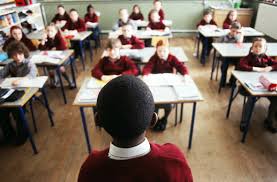By Shy Hardiman
Five months ago, for the first time ever, Dheeraj Srivatsav left his home of Bangalore, India for the U.S.
“People are really nice here,” said Srivatsav. “You need to layer up yourself when you go out but that’s the only thing. It [studying in the U.S.] is a good experience.”
The minimum weather in Bangalore, located in the southern most part of India, is 50 degrees and is usually around 80 during warm days, according to Srivatsav.
He is one of the many students that attended the annual MU Multicultural Hour Welcome Party on Jan. 29. The graduate student, who came to MU to get his master’s degree in computer science, sat next to another student from Bangalore, Aditya Parashar.
“We were there,” said Parashar. “Apparently, we were neighbors but we didn’t know each other.”
Parashar also came to MU to get his master’s in computer science. The two ate pizza and drank soda while mingling with the other international students at the Welcome Party. While Srivatsav said that the weather is one of the biggest differences in between India and the U.S., Parashar said that it was the food – and traffic.
“I’m used to a place where it’s almost like war out there on the streets,” said Parashar. “You literally have to stop [cars] with your hands, so that [crossing the street at MU] has been really nice. I like being given preference when you are walking.”
In addition to both being from Bangalore, studying for their masters in computer science, and being vegetarians they are also both multilingual.
“I speak four [languages] – Hindi, English, Kannada, and Marathi,” said Parashar.
Srivatsav speaks Hindi, English, Kannada, and Tamil.
Although they both speak multiple languages, they came to the Welcome Party to meet people that they have commonalities with and differences. Parties like the Multicultural Hour have been one of the main ways that Srivatsav and Parashar have made friends at MU.
“These things are really good,” said Srivatsav. “You get to meet so many different people – so many different cultures.”
And even though they are thousands of miles away from home, they don’t feel like they’ve landed in a foreign land at all.
“People, invariably, you dig a little deeper and they are all the same,” said Parashar.


